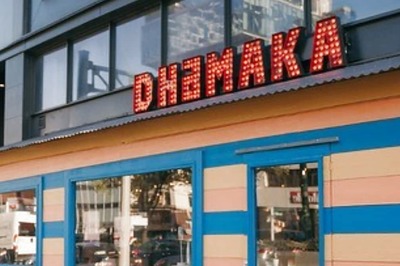
views
Preparing to Open Your Store

Find a suitable location. The profit margins on liquor stores are low and demand is inelastic, meaning that it doesn't change much over time. That means the success of your liquor store is inextricably connected to its location. If you open a store in a market that's already saturated, not only is your store unlikely to do well, but you're likely to eat into a local competitor's bottom line as well. Liquor stores are very much neighborhood stores. What sells in one neighborhood won't necessarily sell in another. Keep this in mind as you're scouting locations. Market saturation is heavily influenced by distance to competitors, but there are other factors at play. Another influential factor is the demographic and cultural makeup of the neighborhood itself.

Hire a lawyer. Once you've identified what seems to be a suitable location, you need to make sure you can actually operate a liquor store there. Many localities will have restrictions on where alcohol can be sold—not in close proximity to a church, for example—and it isn't always easy to be sure you're abiding by state, county, and municipal laws. Indeed, the state and local laws governing the retail sale of alcohol and spirits are so inconsistent across jurisdictions that the best advice to give about licensing is to hire an attorney familiar with the local laws and let them guide you through the process. For example, some jurisdictions have a hard cap on the number of liquor stores. In those jurisdictions, the cost of a liquor license can be astronomical--$1 million--because you have to buy the license from someone who already holds one. In jurisdictions without a hard cap, you might be able to get a license for a few hundred dollars. Licensing is just the beginning. Some jurisdictions don't allow sales on certain days and times, others don't allow spirits to be sold with beer and wine. Some don't allow any liquor sales at all. Often, the restrictions aren't statewide, but counties and municipalities place additional restrictions on alcohol sales, which is why local assistance is important. One thing is consistent across jurisdictions: running afoul of local regulations is expensive. It's best to pay for the attorney now and get the licensing right than it is to get the licensing wrong, pay a fine, and then pay an attorney.

Research the market. When you've established that you'll be able to sell alcohol at your chosen location, you need to take steps toward crafting a business plan. The first of these is to research the market around your chosen location. Liquor stores are very much neighborhood stores. What sells in one neighborhood won't necessarily sell in another. An influential factor is the demographic and cultural makeup of the neighborhood itself. The more detailed the market analysis in your business plan, the more detailed your cost estimates can be. Take factors like ethnicity, age, marital status, and income into account when you're conducting your market analysis, because they all heavily influence drinking habits.

Create sales and cost projections. The market analysis is meant to give you a good idea of your customer base. With an idea of the composition of your customer base, you can create sales and cost projections based on buying habits and price points for items in your area. For example, if you have a disproportionate amount of young single customers in your area, you can anticipate selling large amounts of beer and shooters like tequila. Approach wholesale distributors about their case prices and compare that expense with the local price point of popular brands. When that's combined with traffic estimates and overhead (including rent and labor costs), you can estimate costs and sales. Don't neglect the impact of competitors on your sales.

Obtain financing if necessary. As a rule of thumb, a new business owner should use as little financing for a start-up as possible. This rule applies to liquor stores too, but since demand for alcohol is more or less fixed, many lenders will regard a liquor store as an unusually safe investment. When you approach the lender, bring your business plan and financial statements (including income, assets and liabilities, and tax documents) along with you. Although business plans are detailed documents, you've already done the most important work, the market research and the revenue projections. Find out more about how to write a good business plan at Write a Business Plan for a Small Business.

Register with the Alcohol and Tobacco Tax and Trade Bureau (TTB). The TTB is a part of the Department of the Treasury that regulates the taxation and trade of Alcohol and Tobacco. While there is no special tax a retailer has to pay, all retail sellers of alcohol must register with the TTB. In the past, alcohol retailers had to pay a special tax to the US Treasury. No longer. Registering and keeping the registration accurate are the only requirements. The only information you'll need is the name and address of all of the owners, the name and address of the business, and the type of alcohol sales you'll be engaging in (beer, wine, liquor, etc.). You can find the form at https://www.ttb.gov/images/pdfs/forms/f56305d.pdf.

Buy your inventory. This is going to be your biggest expense. A well-stocked liquor store will have millions in inventory sitting on the shelves. There will be a temptation to try and compete with that, but you should resist. Tilt your initial inventory toward items which will sell quickly—the more you sell, the cheaper the cost to you—and then broaden your inventory later. The price of alcohol is usually fixed by a distributor who has a monopoly on that particular brand (which is why the prices of alcohol are similar everywhere), so you're unlikely to be able to negotiate much on the price. So if you want Jose Cuervo, you can't shop and compare—one distributor will sell Jose Cuervo wholesale, and you'll only get volume discounts.

Consider hiring an employee. Most liquor stores aren't the types of businesses with absentee owners. The owners of liquor stores usually work in the store full time, especially in the beginning. Nonetheless, hiring an employee or two might help you operate more efficiently than you would otherwise be able to.
Keeping it Profitable

Hold wine tastings or mixology classes. Since consumers are more educated than ever before, they appreciate the nuance of a good drink recipe or learning about a small, unknown winery like never before. Try to use the educated consumer to your advantage. While this isn't always an option due to local laws, if it is legal in your area, classes like these are a great way to keep consistent traffic inside the store. Even if you can't hold wine tastings or mixology classes on the premises, you can get creative to accomplish the same goal, partnering with local restaurants or securing alternative spaces.

Suggest food pairings. As the sommeliers say, “what grows together, goes together.” Suggesting food pairings to go along with beer, wine, and spirits can be a great way to cultivate an air of expertise, which will appeal to higher-end customers. You can even take this strategy one step further and sell some of the foods (like fruit, cured meat, or cheese) to go along with your beverages. Your customers will pay for the convenience.

Boost your online presence. Create a high quality, professional website, start an email list, and encourage your customers to post online reviews. Get active on social media and announce flash loss-leader specials (selling a product at a loss for a short amount of time to drive up traffic). Do whatever you can to boost your visibility and ingratiate yourself in the fabric of the community.

Sponsor local events. A good way to ingratiate yourself in the community is by sponsoring local events like festivals and concerts. Not only is it an opportunity to boost sales at that event, but you can offer promotions to get concert-goers back in your store to keep the sales going strong.

Request promotional items from distributors. Most distributors will keep you stocked with new displays, swag, and signage. Make sure you keep it updated, because it will make your store seem fresh.

Stay on the right side of the law. Selling to underage customers, even by mistake, can cost you thousands in fines and can even put your livelihood in jeopardy. Check identification diligently, and ask local law enforcement what you can do to make sure you don't get fooled by a fake ID. You should also beware of criminals, as liquor stores have often been targets of criminal activity. Although robberies of convenience and liquor stores have declined along with the use of cash, it can still be a concern.




















Comments
0 comment